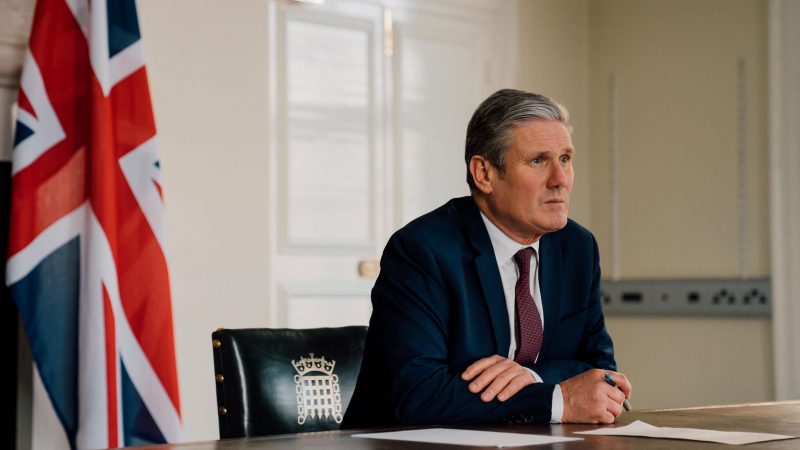
The UK is in the grips of seemingly never ending crises. For far too long, people have been told to ‘weather the storm’ with the government offering no lasting solutions. Following Human Rights Day on December 10th, there is little to celebrate. But a recent proposal may offer part of the solution.
With rising prices outstripping wages and benefits, the cost-of-living crisis is severely impacting people’s standard of living. This follows the pain of a decade of self-inflicted austerity, which dismantled much of our social infrastructure and left us exposed to the ravages and inequality of the ensuing pandemic.
The symptoms of these unending crises are all around us. We’re entering a winter where energy prices have rocketed, with gas up 141% since last year. ‘Warm banks’, heated safe spaces that hand out clothes and blankets, are being set up in communities everywhere. People simply cannot afford to heat their homes – meaning misery for millions.
This is alongside the now institutionalised phenomenon of food banks giving emergency parcels and free breakfast clubs for hungry children. Hunger was woven into the fabric of the UK some time ago, but with the latest crisis we are at a tipping point. Rising costs mean people are forced to cut down in all sorts of ways, with less money for essentials like a bus ticket to town, school supplies for their kids, or toiletries to keep clean.
The common thread throughout this era of crises is that it is the same people who feel the sharpest effects, those living in poverty (particularly woman), older people, children, migrants and disabled people. And yet we are repeatedly told that we are ‘all in this together’.
This current situation is the direct result of successive governments refusing to look beyond the short term. When intervention has happened, it has been minimal and temporary, only ever plugging gaps. There is a desperate need for something different, something which reconfigures the status quo and protect us against future crises.
In opposition, the Labour Party should be making the case for a new approach and rebuilding trust in politicians. Last week, former Prime Minister Gordon Brown’s Commission published his report of the Commission on the UK’s Future, which has some innovative ideas to improve the state of the country.
One of these is a proposal for the UK to return to the founding principles of the welfare state by enshrining some of our economic, social and cultural rights (our right to housing, health, education and an adequate standard of living) into domestic law. This call for a human rights-based response is the sort of change the country desperately needs.
If these rights were enshrined in law it would offer a genuine safety net for future generations. We wouldn’t have to speculate whether the UK government would act to ensure people have enough to eat, adequate housing or access to education – it would be obligated to. Also, if the government was failing to meet these objective standards, then the courts would be there as a last resort, representing a genuine shift of power to the people.
In the report, Gordon Brown recognises that social rights are popular with the public and that “rights matter to individuals and families all across the UK… and the case for enunciating and protecting certain basic social rights is a strong one”. The challenge now is to convince Keir Starmer of the same argument.
When speaking to the media this week, Starmer talked up the need to find longer-term political solutions rather than “sticking-plaster politics”. He understands the essential nature of the various crises, it is now imperative that the next step taken is towards the bold structural solutions needed.
If Starmer is searching for sensible but radical policies that will tackle the root causes of the current malaise, then a clear option is right in front of him. Enshrining our economic, social and cultural rights into domestic law is the long-term solution that he is seeking. Although it would be ground breaking for our country, it has already been done across the world – from Finland to Colombia and South Africa to Germany. Indeed, we only have to look north to Scotland to see their own well-advanced plans to enshrine many of these rights.
It is time that we took decisive action for the future. Enshrining these human rights into law means creating real and legally enforceable protections that may not put an end this era of crises, but will ensure that we have strong constitutional protections to both withstand it and emerge the stronger and more united country that our future generations deserve.
Alex Firth is research and communications officer for Just Fair.




More from LabourList
Antonia Romeo appointed to lead civil service as new Cabinet Secretary
‘If Labour is serious about upskilling Britain, it must mobilise local businesses’
Stella Tsantekidou column: ‘What are we to make of the Labour Together scandal?’